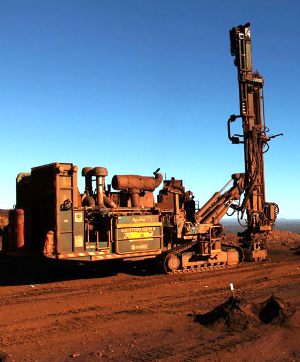Energy chiefs push for union power wind-back
 Some influential groups from the oil and gas industries have told the Federal Government to get cracking on changes to the Fair Work Act, saying billions of dollars and thousands of jobs are at risk.
Some influential groups from the oil and gas industries have told the Federal Government to get cracking on changes to the Fair Work Act, saying billions of dollars and thousands of jobs are at risk.
Major producers including Chevron, Shell and Woodside would like for production to become cheaper.
They say the way to do this is by reducing unions’ right of entry to worksites and imposing tougher fines for illegal strike action.
The energy giants are afraid $180 billion worth of international investment and 150,000 related jobs will be given to another country if the changes in Australia are not hurried along.
For LNG extraction, Australia has the highest production costs in the world, and Chevron’s Australian managing director says if the domestic industry is to continue then the Prime Minister needs to act.
“At the heart of the matter is a need for a structural change to manage Australia’s increasing costs,” Chevron’s Roy Krzywosinski has told the Australian Financial Review.
“After five years of significant investment in Australia, first Gorgon and then Wheatstone, investment conditions have changed.”
The Australia Petroleum Production & Exploration Association (APPEA) says the country is pricing itself out of future investments.
APPEA wants a special category of enterprise bargain agreements created to cover “mega projects” worth $5 billion or more.
The group says wages are exorbitantly high across the oil and gas sector, and chief executive David Byers told an industry meeting in Perth over the weekend that “we have to reduce the cost of doing business in this country.”
APPEA took particular aim at the wages of some cooks and laundry workers on offshore LNG platforms, which is says can be over $325,000 per annum.
Australia has about $200 billion worth of LNG works under construction, which will increase output to soon make it one of the world’s biggest suppliers of the fuel.
But another $180 billion of potential investment is under threat due to high costs and increasing competition, according to APPEA.
The Maritime Union of Australia - which represents nearly 15,000 offshore workers - told finance media outlet Bloomberg that “poor management” is to blame for some projects overrunning, and that pay increases do not match industry revenue growth.









 Print
Print